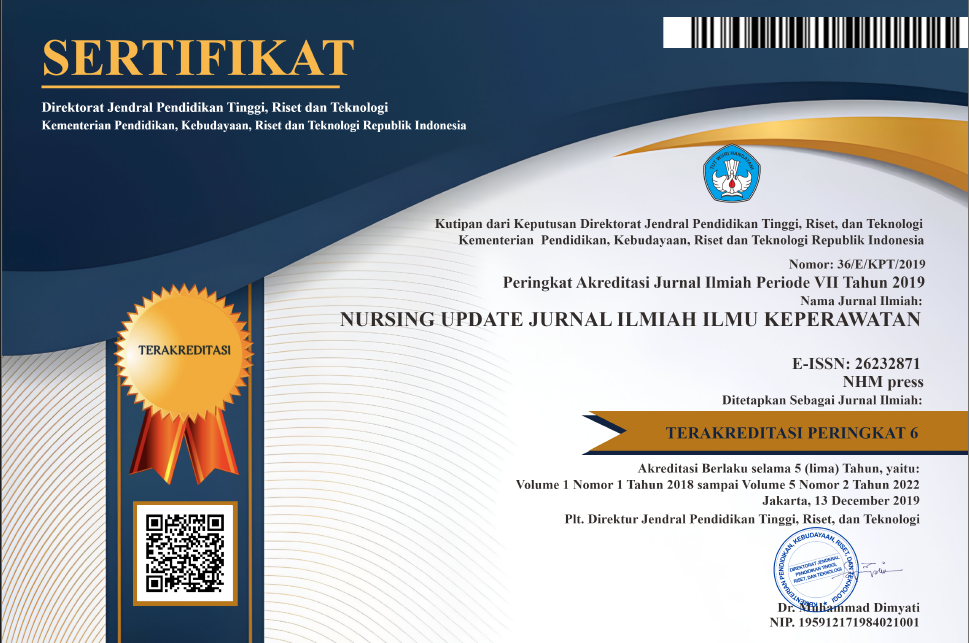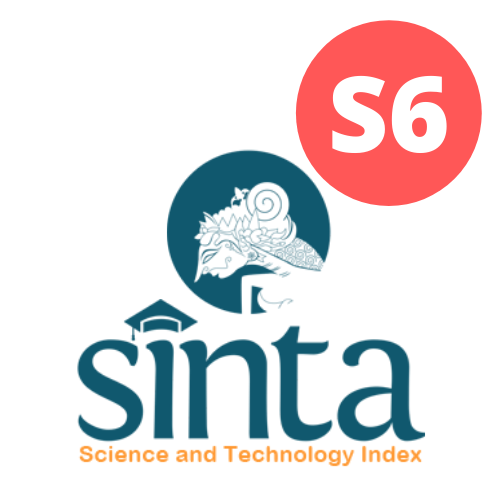SELF CONCEPT ANALYSIS ON DEPRESSION LEVEL OF STROKE PATIENTS USING THE CALLISTA ROY MODEL CONCEPT APPROACH
Abstract
Stroke patients have many psychological changes such as depression and social limitations. Several factors that can affected to depression level were genetic factor, disability level, social engagement, stroke severity level and self concept. The purpose of this study was to analyze self concept on depression level of stroke patients using Callista Roy Concept Model Approach. The design used correlation analysis with cross sectional approach. Sample of this study were 67 respondents used purposive sampling method. The independent variable was self concept while the dependent variable was depression level. The instruments of this study were self concept questionnaire and depression level questionnaire (Hamilton Depression Rating Scale). The analyze used Spearman Rank test. The results showed that most of the respondents have low self concept of 37 respondents (55.5%) while the depression level showed severe depression of 37 respondents (55.2%). Based on the analyze, it was found that p-value (0.001) < α 0.05. So it can be concluded that there was relationship between self concept and depression level of stroke patients. Self concept changed the personal perspective to their own self. They felt more appreciated and accepted to their self. So it could increase their self motivation and decrease their depression level.










